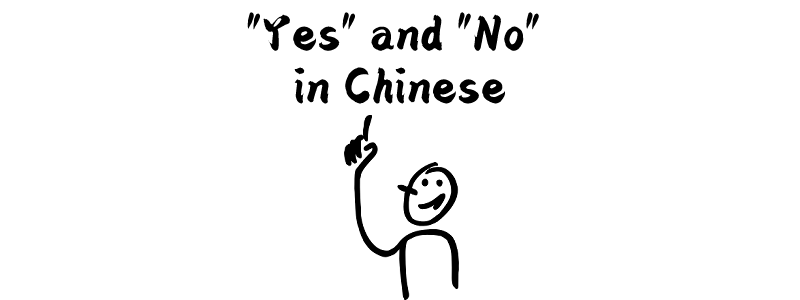I’ll get straight to the point here. Chinese does not have specific words for “yes” and “no” that directly translate into English. Instead, Chinese language relies on context, repetition of verbs, or affirmative/negative expressions to convey agreement or disagreement. If you’re interested in the details, keep reading!
No Direct “Yes” or “No” Words
Unlike English, which uses “yes” and “no” as standalone responses, Chinese speakers typically respond by repeating the main verb or adjective from the question or by using phrases that explicitly confirm or deny the statement.
Affirmative Responses = YES
Q:你會說中文嗎?你会说中文吗?
Can you speak Chinese?
A:會会
Yes. (I can)
Q:你喜歡狗嗎?你喜欢狗吗?
Do you like dogs?
A:喜歡喜欢
Yes. (I like them.)
Q:天氣冷嗎?天气冷吗?
Is the weather cold?
A:冷冷
Yes, (It’s cold.)
Negative Responses = NO
Negative responses typically use negation words like 不 bù or 没 méi in combination with the verb, adjective, or phrase.
Q:你買咖啡嗎?你买咖啡吗?
Are you buying coffee?
A:不買不买
No, I’m not.
Q:你有錢嗎?你有钱吗?
Do you have money?
A:沒有没有
No, I don’t.
Q:你知道我愛你嗎?你知道我爱你吗?
Do you know I love you?
A:不知道不知道
No, I don’t.
How About 对 duì and 不对 búduì?
In Chinese, 对 duì and 不对 búduì can sometimes mean “yes” and “no,” but they don’t work exactly like “yes” and “no” in English. Instead, they mean “correct” and “not correct.”
Q:這是你的書嗎?这是你的书吗?
Is this your book?
A:是!是!(對对 is also ok.)
Yes!
Q:我們是明天一起吃飯嗎?我们是明天一起吃饭吗?
Are we eating together tomorrow?
A:不對,是今天不对,是今天
No, that’s wrong. It’s today.
Why Doesn’t Chinese Have “Yes” or “No”?
This difference stems from the syntax and semantics of the language:
- Verb-Centric Responses: Chinese grammar often centers around verbs and adjectives, making it natural to affirm or negate them directly.
- Avoiding Ambiguity: Repeating or negating the verb provides clarity, which standalone “yes” or “no” might lack in a tonal language.
- Cultural Influence: Chinese communication often emphasizes precision and avoiding misinterpretation.


